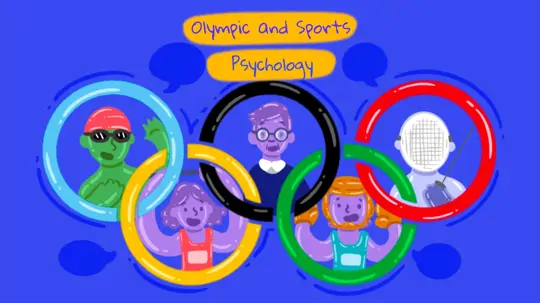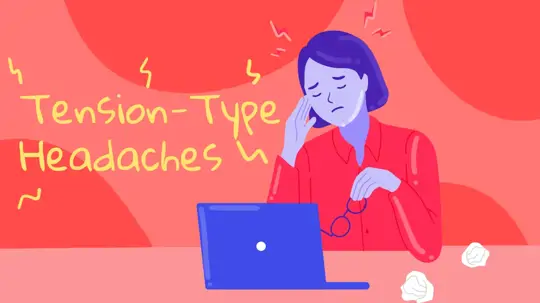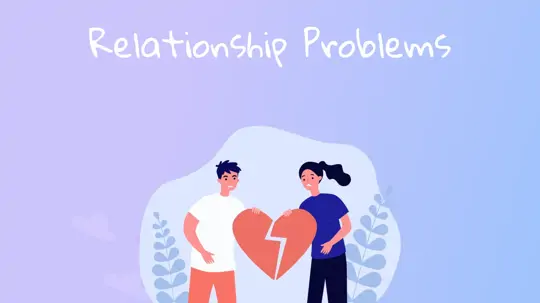
Start feeling better today!
Connect with your therapist today and take control of your life like our 850.000 happy clients.
Get StartedWhat is The Mind?
The mind encompasses all of a person's mental processes as well as the structural and functional systems that these processes are linked to. As a result of the electrical and neurochemical interactions between neurons in our brain, the mind emerges.
The American Psychological Association broadly defines mind as "all intellectual and psychological phenomena encompassing a person's emotional, behavioral, perceptual, and cognitive systems."
Although the processes in our minds run smoothly and uninterrupted under normal circumstances, certain factors can disrupt the system's flow and cause mental fatigue:
- Constant stress
- Working too much
- Drinking habits
- Financial problems
- Chronic health problems
- Insomnia
- Not eating a balanced and regular diet
- Overthinking
What is Mental Fatigue?
People who feel mental fatigue often complain that they have difficulty in processing even the simplest information, that they cannot grasp the basic information, and that they have to ask and review information several times in a row.
In the case of mental fatigue the following symptoms may also be present:
- Inability to focus
- Hopelessness or motivation issues
- Seeing it as impossible to do even small tasks
- Feeling as if the brain is foggy
- Difficulty making decisions
- Constantly changing tasks
- Inability to balance work and private life
How Stress Can Fatigue the Mind?
As is well known, intense stress is a significant trigger of the stated feelings or thoughts. It can also be triggered by situations such as working for long periods of time without rest, being socially isolated, suffering from a chronic illness, or caring for someone who suffers from a chronic illness.
Long-term exposure to such triggers, in particular, can result in more serious health problems. Mental fatigue, on the other hand, can affect not only the mind and body, but also cause behavioral changes in a variety of social relationships.
Mental Burnout
Mental burnout is a more advanced form of mental fatigue that can lead to serious psychological issues like anxiety and depression. Furthermore, feeling less positive emotionally, mood disorders, primarily irritability, isolation, and lack of productivity may manifest physically; headaches, body pain, inability to sleep, fatigue, weight loss or gain, and weight loss or gain can have more serious consequences that affect our lives.
This is why it is essential to rest our minds. In conclusion, one should take care of one's mental and physical health in order to avoid larger and unavoidable problems. As a result, dedicating time to our mind and body, as well as increasing our awareness of them, is seen as a way to keep our minds from becoming tired or burned out.
Applying the following suggestions to our daily lives on a regular basis, or only when we notice that our minds are tired, can help to alleviate the effects of such issues.
1. Mindfulness and Meditation
Mindfulness, as it is known, is a brief state of awareness that has recently been mentioned in popular culture. To put it another way, it is the degree to which a person is aware of his or her own feelings and thoughts, as well as conscious of his or her own body.
Meditation is another technique for calming the mind. The main goal of meditation, which can be practiced in a variety of ways ranging from beginner to expert, is to take time out of one's busy life to listen to oneself and relax the mind.
Meditation helps to reduce problems with inability to focus, introspection, and emotional awareness. It also helps to strengthen focus and regulate stress-related hormones. Physically, it lowers blood pressure, lowers the risk of stress-related diseases, reduces chronic pain, and improves sleep quality.
Mindfulness is also a type of meditation, but the main difference is that it cannot be practiced at any time during the day (eg, while driving). Mindfulness can become a part of your life, allowing you to become more aware of yourself and your surroundings while also allowing you to integrate. "To let go" and "to live in the moment" are the main goals of both.
Being able to accomplish this allows for relaxation and the release of past and future stress from the tired mind. Many experts also agree that practicing meditation on a regular basis has mental health benefits. Simultaneously, it improves one's ability to concentrate. When you are experiencing symptoms of mental fatigue, try this method.
2. Mixing with the Nature
Despite the fact that most people spend the majority of their time in the exhausting and suffocating aspects of city life, they always need to reconnect with nature. We can think of things like long walks on the beach or in the woods, gardening, and helping animals.
Being in green areas, in particular, can take a person away from a stifling school or work environment. That's why, when the opportunity arises, we want to rush to places where this kind of silence reigns supreme and stressors are few. Being in nature, even just looking at it, has been shown to reduce anger, fear, and stress, according to studies.
Although it is difficult to experience this on a regular basis these days, it can be a viable option to consider when mental and physical fatigue increases.
3. Focusing on and Loving Yourself
Another factor that helps to relax the mind and eliminate fatigue is this way of thinking, which has become increasingly popular in recent years.
People, in general, define themselves in terms of the boundaries drawn by others or the cultures to which they belong, and they strive to keep the ideal people they create within these boundaries. This causes people to constantly question themselves and consider what they are doing incorrectly or correctly.
Accepting that everyone is different and practicing self-compassion can help a lot with mental fatigue. At the same time, increased life motivation has been shown to help people overcome self-doubt and negative emotions.
What is the best way to accomplish this? Instead of focusing on your dislikes, talk to yourself about your positive qualities, and try to reframe your negative thoughts to reduce stress even more. Also, instead of cruel "all or nothing" thoughts about yourself, try to be more flexible and avoid overgeneralizations or labeling about yourself and your environment.
Another idea is to keep a "thank you journal." You can keep track of how you're progressing each day, what you love, and what you're grateful for in this journal. Instead of focusing on the negative and exhausting the mind, you can gain a better understanding of yourself and learn to focus on the positive aspects of life through concrete examples.
4. Being Productive
Although being productive when we are mentally exhausted can be difficult, it is a very helpful suggestion if you find an activity that you enjoy producing and make it a part of your life before you encounter such a situation.
Writing, drawing, dancing, cooking, singing, teaching a hobby to others, conducting research, or engaging in activities related to your passions, such as writing, are all examples of personal spaces to which you should retreat when you become aware of mental fatigue.
It's also useful for creating. Because you'll need to start these habits earlier, when you're mentally fatigued, doing what you're used to will be beneficial because it won't force our minds to choose between multiple options. At the same time, by revealing your creative side, you may be able to clear your mind of the misty clouds it has created, allowing you to feel motivated and positive once more.
5. Classifying and Grouping
This suggestion to discuss can be a great way to organize your daily weekly chores that you need or want to do without overthinking them. This suggestion can be used in a variety of ways, including not only planning your day or week, but also sorting the small tasks you'll complete by importance and urgency, and organizing your belongings by ease of use.
Although the mind is good at planning for the future, it has a tendency to forget when it is under a lot of stress or has a lot of things to do. To help with this, digital or non-digital applications can be used. Options such as making a calendar-based plan or making a to-do list, for example, make our daily lives easier and lessen the burden on our minds.
Furthermore, arranging tasks according to their importance and urgency when deciding what to do prevents repeated planning and does not add to the burden because the mind knows when to do it. The aforementioned suggestion can also be done before you experience any mental fatigue, which is a better solution.
Because the mind is more likely to shut down when it is fatigued, it may be unable to complete tasks that require thinking and planning. However, as a different but unplanned variant of this activity, tidying the house or your room when you're tired can also help reduce stress and divert the mind.
6. Breathing Exercises
Breathing correctly has a calming effect on our bodies. This easy-to-learn technique requires slow, deep breathing. We must practice the abdominal breathing technique here, which is different from normal breathing. In everyday life, we use this technique to hold the breath we exhale directly into the lungs without letting it stay in our body for a long time. Slow breathing increases body awareness while also improving focus, muscle relaxation, and relaxation.
As a result, learning to breathe properly, deeply and slowly from the abdomen may be one of the best and easiest ways to calm the confused mind. It's possible that you won't be able to do this for every breath in this fast-paced world. However, we can use this technique to relax the mind and body when we have a need for it, such as tiredness, panic attacks, rapid heart rate, or stress.
Breathing exercises can be done alone or in combination with centuries-old practices like yoga, tai chi, or qigong. The goal of these exercises is to achieve body-mind harmony through breathing, to be in the flow, and to eliminate negative thoughts. If this is difficult for patients with certain health issues, they may only be exposed to breathing exercises.
7. Visualization Techniques
The visualization technique can be described as thinking as if a person is in the present moment by visualizing a time when he or she feels happy and relaxed, or expects to feel. It's a lovely and simple way to get away from the panic and stress of the moment.
This visualization is frequently used in natural and relaxing settings, such as the beach, lakeside, and so on. The brain will focus on elaborating the place where the person imagines and the ratio instead of the stress factor and negative thoughts, preventing the transition to the chaotic thinking part at the time of fatigue, thanks to this visualization technique.
This technique is also used in a variety of meditation techniques. In fact, it has been observed in some studies that using visualization technique has effects such as lowering blood sugar, improving blood pressure, and lowering cholesterol levels.
Apart from the aforementioned benefits, it is well known that the exercises help people relax, focus, and relieve stress on both a physical and mental level. After all, getting enough sleep, eating well, and participating in sports are three important aspects of one's life that should never be overlooked.
Furthermore, even if you follow the above-mentioned recommendations, some of which are long-term and some of which are short-term, if you have been suffering from the same symptoms for a long time, it is definitely beneficial to seek professional help.
References
- 8 Scientifically Proven Ways to Beat Mental Fatigue
- Mindfulness Basics
- Move Beyond Mindfulness: Why Awareness Is More Powerful
- Learning Deep Breathing
- Proper Breathing Brings Better Health
- Diet Hacks to Reduce Chronic Fatigue
- How to Relax Physically and Emotionally
- What Is Meditation?
- YouTube Video
- Relaxation Technique
- Six Relaxation Techniques to Reduce Stress
- Exercising to Relax
- How to Relax Your Mind
- Popular Relaxation Techniques
- Relaxation and Meditation Techniques





